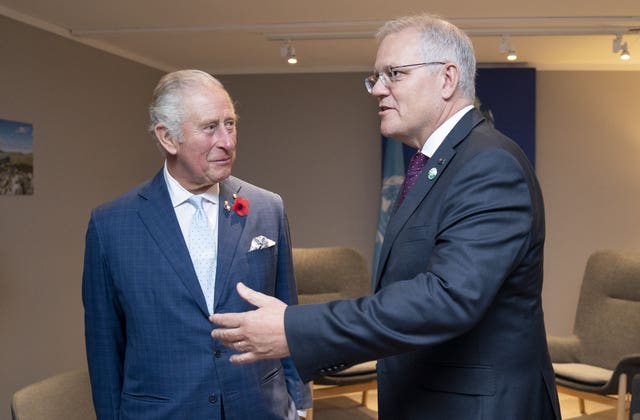
Australia’s prime minister has called for a May election that will be fought on issues including climate change and the pandemic.
Prime Minister Scott Morrison on Sunday advised Governor-General David Hurley as representative of Australia’s head of state, the Queen, to set the election date.
Mr Morrison will announce later on Sunday that Australia will go to the polls on May 14 or May 21.
Mr Morrison’s conservative coalition is seeking a fourth three-year term.
Mr Morrison led his government to a narrow victory at the last election in 2019 despite opinion polls consistently placing the centre-left opposition Australian Labor Party ahead.
The Liberal Party-led coalition is again behind in most opinion polls, but many analysts predict a tight result.
The last election occurred in the hottest and driest year Australia had ever experienced. The year ended with devastating wildfires across Australia’s south-east that directly killed 33 people and more than 400 others through smoke.
Mr Morrison was widely criticised for taking a secret family vacation to Hawaii at the height of the crisis while his hometown Sydney was blanketed in toxic smoke.

He cut his vacation short due to the public backlash, but was further criticised over his explanation for his absence: “I don’t hold a hose.”
His government was criticised for its responses to the fires and also record flooding this year in some of the same areas in Australia’s south-east that were razed two years earlier.
Australia was initially successful in containing the death toll from the Covid-19 pandemic largely through restrictions on international travel.
But the more contagious Delta and Omicron variants have proved more difficult to contain.
The opposition criticised the government over the pace of Australia’s vaccine rollout, which was derided as a “stroll out” as it fell months behind schedule. Australia’s population is now one of the most vaccinated in the world.
The government has defended its pandemic record and takes credit for Australia having the third-lowest death toll among the 38 Organisation for Economic Development and Cooperation countries.
With China imposing official and unofficial trade sanctions against Australia in recent years, the government argues that Beijing wants Labor to win the election because the party was less likely to stand up to economic coercion.
Labor takes credit for thwarting the government’s plan in 2014 to sign an extradition treaty with China. Bilateral relations have since deteriorated, and the government now warns that Australians risk arbitrary detention if they visit China.
Several experts say both sides of politics are largely united on national security issues and that the government in confecting differences on China.


Comments: Our rules
We want our comments to be a lively and valuable part of our community - a place where readers can debate and engage with the most important local issues. The ability to comment on our stories is a privilege, not a right, however, and that privilege may be withdrawn if it is abused or misused.
Please report any comments that break our rules.
Read the rules here